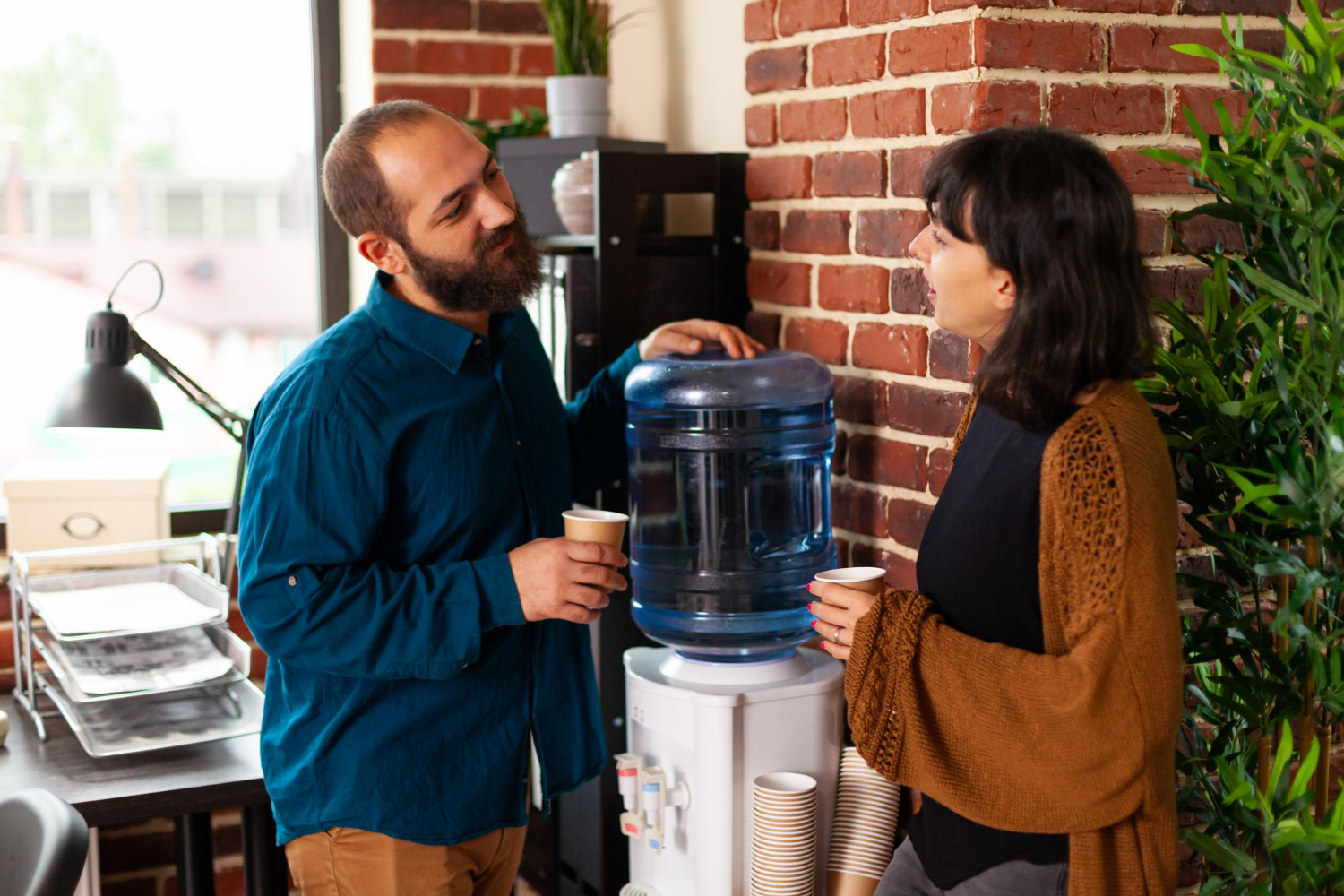People are becoming more aware of the importance of clean water. Choosing the right online water filters can greatly improve health by removing harmful contaminants. Online water filters are convenient options for consumers looking to enhance their water quality at home.
Shopping for water filters online allows customers to compare products easily and find the best fit for their needs. Many brands offer a variety of filters, from pitcher systems to under-sink options. This variety helps ensure that everyone can find a solution that works for their specific situation.
Understanding the different types of filters available is essential for making an informed decision. With options that can remove contaminants like chlorine, lead, and heavy metals, consumers can feel confident in their choice. Online resources and reviews provide valuable insights that guide buyers in selecting the right water filtration system.
Benefits of Using Online Water Filters
Online water filters offer various advantages that improve water quality, enhance health, and provide convenience. Choosing the right filter can lead to better-tasting water, health benefits, and a more eco-friendly lifestyle.
Improved Water Taste
One of the main benefits of using an online water filter is the improvement in taste. Tap water often has an unpleasant taste due to chlorine and other contaminants. Many filters use activated carbon to effectively remove chlorine and other impurities.
When people use these filters, they notice a refreshing change in their drinking water. This can encourage them to drink more water daily, supporting better hydration. A better taste also makes it easier for families to enjoy water without the need for added flavorings or sugary drinks.
Health Advantages
Using a water filter helps ensure cleaner and safer drinking water. Filters can remove harmful contaminants such as lead, bacteria, and parasites that may be present in tap water.
In addition to improving taste, healthier water supports overall well-being. Access to clean water can reduce the risk of illnesses caused by contaminated water. Investing in a quality filter may also reduce health care costs over time.
Eco-Friendly Option
Online water filters are an eco-friendly choice. By filtering tap water, individuals can reduce their reliance on bottled water. This helps cut down on plastic waste, which is a significant environmental issue.
Many water filters are designed for long-lasting use, reducing waste over time. Additionally, some filters come with replaceable cartridges, which means less plastic is thrown away compared to single-use bottles. Choosing a filter supports a sustainable lifestyle and contributes to a healthier planet.
Convenience and Accessibility
Shopping for water filters online provides convenience and accessibility. Many options are available, allowing users to compare different brands and types from home. This means users can find the filter that best meets their needs without rushing to a store.
Online retailers often offer detailed product descriptions and customer reviews, making it easier to make informed decisions. Fast shipping options help ensure that users receive their filters promptly. This accessibility allows families to improve their water quality quickly and efficiently.
Types of Water Filters Available Online
There are many types of water filters that people can buy online. Each type serves different needs, whether for home use, convenience, or portability. Below are the main categories of water filters available for purchase.
Pitcher and Dispenser Filters
Pitcher filters are popular for their simplicity and ease of use. These filters use activated carbon to reduce contaminants like chlorine, lead, and other impurities.
- Benefits:
- Affordable and portable.
- Requires no installation.
Most models have a capacity of about 10-12 cups. Users simply fill the pitcher with water, allowing it to flow through the filter. It also offers a visual cue when the filter needs changing, usually after about 40 gallons or every two months, depending on usage.
Under-Sink Filters
Under-sink filters are installed directly in the plumbing beneath the kitchen sink. They usually involve multiple stages of filtration, including sediment, carbon, and sometimes reverse osmosis.
- Benefits:
- Provides clean water directly from the tap.
- Saves counter space and keeps the kitchen looking tidy.
Installation can be a bit complex and may require professional help. Many systems can filter up to 50 gallons a day, making them a great choice for regular use in larger households. Maintenance involves changing filters every six months to a year.
Whole-House Filtration Systems
Whole-house filtration systems treat water as it enters the home. These systems can filter out sediment, chlorine, and other chemicals at the point of entry.
- Benefits:
- Provides filtered water from every tap and appliance.
- Reduces plumbing issues caused by hard water.
These systems usually require professional installation due to complexity. They often incorporate multiple stages of filtration and can remove larger contaminants, ensuring the entire household has access to clean water.
Faucet-Mounted Filters
Faucet-mounted filters attach directly to kitchen or bathroom faucets. They provide easy access to filtered water without needing a separate pitcher.
- Benefits:
- Simple installation and removal.
- Filters water on demand.
These filters typically use carbon or multi-stage systems to reduce contaminants. Some models have a switch to allow unfiltered water when needed. Users can expect to replace the filter every 2-3 months, depending on usage levels.
Portable Water Filters
Portable water filters are designed for travel or outdoor activities. They come in various forms, such as bottles with built-in filters or small pump systems.
- Benefits:
- Ideal for hiking, camping, or emergencies.
- Lightweight and easy to carry.
These filters can remove bacteria, protozoa, and sediment from water. Some advanced models even use UV light for additional purification. They are a reliable option when access to clean water is uncertain. Regular maintenance involves cleaning or replacing filters based on the manufacturer’s guidelines.
How to Choose the Right Water Filter
Selecting the appropriate water filter involves understanding the contaminants in your water, filter technology, flow rates, and maintenance requirements. This knowledge helps individuals make informed decisions about the best water filtration system for their needs.
Understanding Contaminants
Before choosing a water filter, it is essential to identify the specific contaminants present in the water supply. Common contaminants include:
- Chlorine: Often used in municipal water treatment.
- Lead: Can leach into water from old pipes.
- Pesticides: May be present in water sources due to runoff.
- Bacteria and Viruses: Harmful microorganisms that can cause illness.
Testing water at home or using municipal water quality reports provides insight into which contaminants need addressing. Different filters target specific contaminants, so knowing the water’s makeup helps narrow down options.
Filter Technology and Efficacy
Different filtration technologies work in various ways to eliminate contaminants. Some popular types include:
- Activated Carbon Filters: Effective in removing chlorine and improving taste.
- Reverse Osmosis Systems: Remove a broad range of contaminants, including lead and nitrates.
- UV Filters: Kill bacteria and viruses without adding chemicals.
When selecting a filter, check its certification. Look for filters certified by organizations like NSF International, as they guarantee effectiveness. Understanding how each type functions ensures compatibility with the specific needs of the household.
Water Flow Rate and Capacity
Another crucial factor is the filter’s flow rate and capacity. Flow rate refers to how quickly water can pass through the filter, affecting daily water usage.
Important Considerations:
- Flow Rate: Measured in gallons per minute (GPM). Higher GPM means more water available for use.
- Capacity: Indicates how many gallons of water the filter can process before needing replacement.
Choosing a filter with a suitable flow rate and capacity ensures it meets daily needs. Low-flow filters may cause delays during refilling, while standard or high-flow filters support busy households effectively.
Installation and Maintenance
Installation and regular maintenance directly affect the longevity and efficiency of water filters.
Installation Types:
- Faucet-Mounted Filters: Easy to install and require minimal tools.
- Under-Sink Systems: Often more complex and may require plumbing skills.
- Whole-House Filters: Typically require professional installation.
Regular maintenance is also critical. Filters need replacement based on usage and type, typically ranging from every 6 months to 2 years. Check manufacturer guidelines for specific recommendations. This helps ensure the filter operates at peak effectiveness, providing clean and safe water.
Installation Guides for Online Purchased Water Filters
Installing a water filter bought online can be straightforward. Many filters come with clear instructions and tools. Below are some essential tips for DIY installation, options for professional help, and solutions for common problems.
DIY Installation Tips
Before starting the installation, gather all needed tools and materials. Most filters require basic equipment like a wrench, screwdriver, and tubing cutter.
- Choose the Right Location: Place the filter close to the main water supply line. This position helps ensure all taps receive filtered water.
- Read the Instructions: Each filter has unique installation steps. Following the manufacturer’s guide is crucial for a successful setup.
- Turn Off Water Supply: Before making any connections, shut off the water supply to avoid messes. Open faucets to drain the remaining water.
- Connect the Filter: Cut the pipe as indicated, following any specific measurements. Use a tubing cutter carefully to avoid damage.
- Test for Leaks: After installation, turn the water back on slowly. Check for leaks at all joints and connections. If leaks occur, tighten fittings or consult the manual for troubleshooting tips.
Professional Installation Services
For those unsure about DIY installation, hiring a professional can be a good choice. Many plumbers have experience with various water filters, ensuring proper setup.
- Expert Guidance: Professionals can help select the right filter based on water quality. They understand local regulations and installation codes.
- Time-Saving: Hiring a professional saves time and avoids potential mistakes. They can complete the job quickly and efficiently.
- Warranty Protection: Some manufacturers require professional installation for warranty coverage. This step ensures that any issues during the warranty period are addressed without extra costs.
- Cost Considerations: While professional services have fees, the investment may be worthwhile if it guarantees a proper installation. A quote can provide insight into expected costs.
Troubleshooting Common Issues
After installation, users may face a few common issues. Knowing how to resolve them can help maintain water quality.
- Low Water Pressure: If water pressure drops, check for clogs in the filter. This can happen if the filter needs replacement or cleaning.
- Unpleasant Taste or Odor: If the water has a strange taste, confirm the filter is installed correctly. A misalignment can lead to the filter not working properly.
- Leaks: Leaks can arise from improper connection. Checking all fittings and seals can help identify problems. Tightening or replacing damaged parts may fix the issue.
- Filter Replacement: Regular checks on the filter’s lifespan are essential. Depending on the water quality, replacing filters every six months or as recommended keeps water safe.
Cost Analysis
Understanding the costs associated with water filters is essential for making an informed decision. Key factors include the initial investment needed, potential long-term savings, and the costs for replacement filters and parts.
Initial Investment
The initial investment for water filtration systems can vary widely based on the type and capacity. For whole-house systems, prices typically range from $1,128 to $3,533. This depends on the system’s features and the installation complexity. Under-sink filters may require a smaller budget, with installation costs between $170 and $580.
Some homeowners may opt for a point-of-entry filter, which costs around $2,265 on average. Additionally, well-water filtration systems can range from $800 to $4,000. Customers should consider both the system’s price and installation costs to gauge the total initial investment accurately.
Long-Term Savings
Investing in a water filtration system can lead to significant long-term savings. Many systems reduce bottled water purchases, which average about $1,400 per year for a family. By using a filtration system, such costs can be minimized dramatically.
Furthermore, quality filters improve water safety, potentially reducing medical bills associated with waterborne illnesses. Long-term maintenance and operation costs are usually lower for higher-quality systems, as they often require less frequent cleaning and servicing.
Replacement Filters and Parts
All water filtration systems require replacement filters and parts to maintain efficiency. Replacement filters typically range from $20 to $100, depending on the system type. Regular replacements are essential for optimal performance, which often translates to costs of $100 to $300 annually.
Homeowners should also factor in additional parts, such as membranes and UV bulbs, which can add to the overall budget. Understanding these costs helps in determining the true expense of owning a water filtration system over time.



